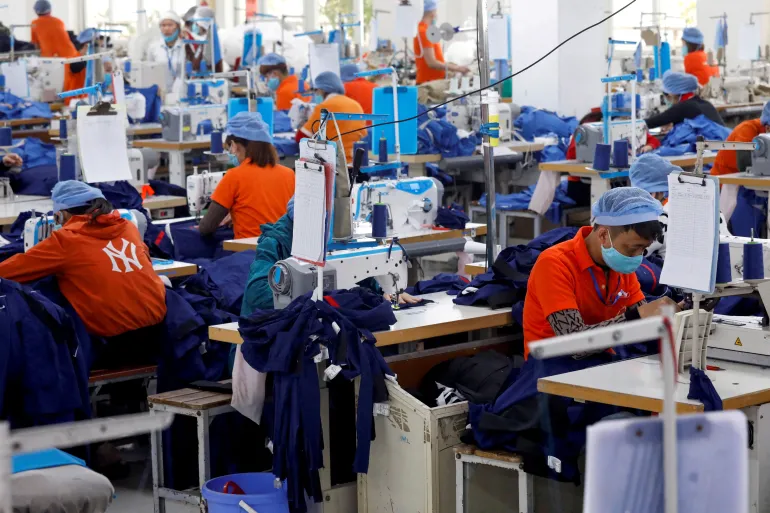Bangladesh: PonteSud – News Desk
Fashion brands including luxury label Hermes, sportswear giant Nike, and fast fashion chain H&M are in the hot seat amid new allegations of climate greenwashing after making commitments to slash carbon emissions in Asia, which is home to more than 50 percent of global garment production.
A report released this morning by the Business & Human Rights Resource Centre (BHRRC), titled, The Missing Thread, analysed 65 global fashion brands. It found that while 44 of them had made public commitments to reduce carbon emissions, none had adopted what is known as a “Just Transition” policy, a concept first introduced during COP27 in Egypt in 2022.
A Just Transition ensures that workers are not left behind as industries shift towards a low-carbon economy.
Only 11 companies in the study acknowledged the climate-related impact on workers in their social and human rights policies. Just four provided any guidance on managing heat-related stress.
Only two companies among those deemed the most ambitious by the report mentioned the welfare of workers. These included Inditex, the Spanish retail giant that owns the fast fashion company Zara, and Kering, the parent company of Gucci.
Currently, the global textile industry relies on 98 million tonnes of non-renewable resources per year, such as oil and fertiliser. At current trends, the fashion industry is on track to be responsible for more than 25 percent of global greenhouse gas emissions by 2050.
The effects of climate change have already hit much of Southeast Asia hard. Garment workers in countries including Bangladesh, Cambodia, Indonesia, and Vietnam have experienced extreme weather events such as surging temperatures and severe flooding.
A third of workers said they had already lost work due to automation. In Bangladesh’s garment sector, 30 percent reported job losses stemming from technological changes.
These shifts have disproportionately affected female workers, who are less likely to receive training on new technologies and are often excluded from on-the-job learning opportunities that could help them adapt to evolving industry demands.







